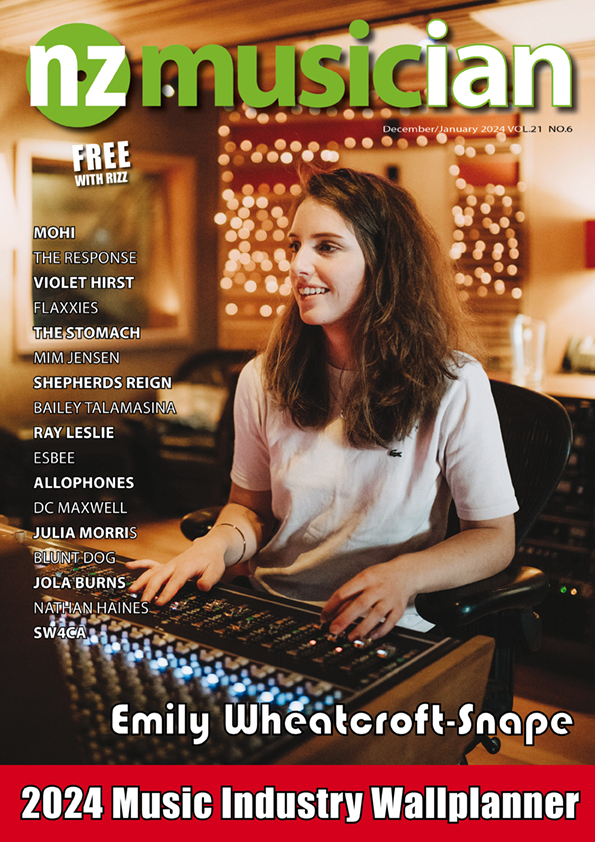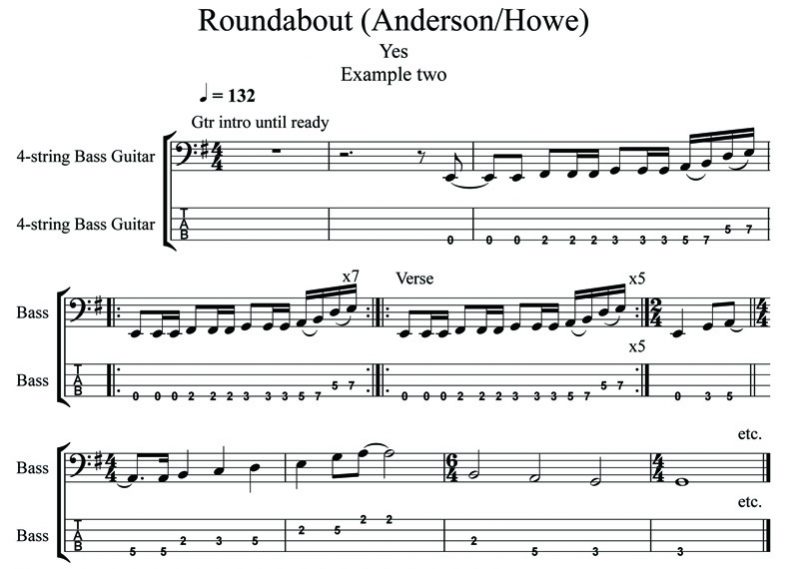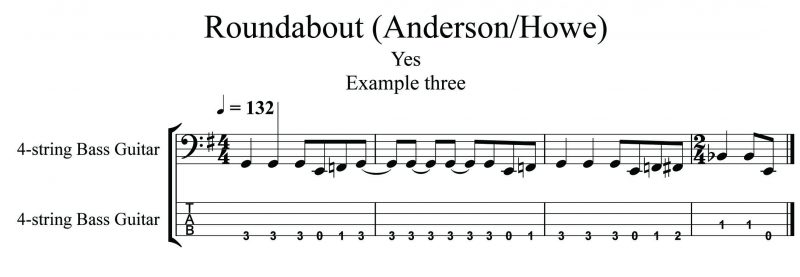Deep Thinking: Chris Squire – Godfather of Prog Bass
Deep Thinking: Chris Squire – Godfather of Prog Bass
Deep Thinking is making a brief return to the world of progressive rock in this issue to make a tribute to the great Yes bassist, Chris Squire (1948 – 2015).
Squire died in June this year, but the number of tributes among bassists on Facebook is ongoing and there has even been a plaque in memorial to him mounted on a building in London, such was his influence.
He was another of those bassists I have often talked about who took the bass guitar into new territories from the early 1970s until his death. Yes were/are one on the most famous bands of the prog genre and Squire was an influence on Geddy Lee (Rush) and many other players who invented lines that were melodic and not always following the traditional role of the bass.
The line I have transcribed is from Roundabout on the 1971 Yes album, ‘Fragile’. At the time, most bassists played with a plectrum, but Squire had an iconic sound that was produced by his customised Rickenbacker 4001, the stereo bass that I mentioned in the last issue of NZ Musician. With two channels at his disposal, he originally used two Fender Dual Showman heads with one set for slight distortion, to produce a very individual sound that was rarely successfully emulated. (I remember as a teen buying a Rick and realising that I needed a technician to customise it as well as a second amp, and that’s before Squire’s playing came into my equation!)
The Roundabout line is mainly constructed from an E Aeolian (natural minor) scale, as notated in Example 1. There are two ways of fretting the line. One is notated in the tablature of Example 2, but the A/B D/E figure can also be played on strings three and two with open strings to fret 2 on each of those strings. I saw Squire do it in the way I have notated it though. The figure is fast and requires alternate picking (up and down strokes). It can be played with picking fingers with some practice.
The main verse line is followed by a 2/4 bar leading to an ascending A minor pentatonic figure in 4/4. In the nature of prog, this phrase is followed by yet another change in time signature, this time to 6/4 (B, A and G minims) followed by a sustained low G.
Example 3 might be seen as a kind of chorus, although the song has several more sections, and the concept of a chorus in a prog tune could be considered problematic. This section follows four bars’ rest – three bars of 4/4 and one of 2/4. It is mainly constructed from a G mixolydian scale (G major with an F natural instead of an F#) and Squire really pumps this part with the drums. He playing G pedal motes with low E rising to F in each of the first three bars, and with an F# passing note leading the Bb and E in the final 2/4 bar. He repeats this four bar phrase several times with variations, before returning to the main verse part.
In later incarnations of Yes Squire occasionally used a custom-built Wal three-neck bass, and he sang all of the high harmony parts of the Yes repertoire while playing some very complex parts. The entire ’Yessongs’ live album is on YouTube. He was extremely inventive and, while I never met him, my UK mates who knew him say that he was a very humble, easy-going guy – my kind of rock hero.
(Dr. Rob Burns is an Associate Professor in Music at the University of Otago in Dunedin. As a former professional studio bassist in the UK, he performed and recorded with David Gilmour, Pete Townsend, Jerry Donahue, Isaac Hayes, Sam and Dave, James Burton, Ian Paice and Jon Lord, Eric Burdon and members of Abba. He played on the soundtracks on many UK television shows, such as Red Dwarf, Mr. Bean, Blackadder, Not the Nine OClock News and Alas Smith and Jones. Rob is currently a member of Dunedin bands Subject2change and The Verlaines.) ashdownmusic.com/artists/252/Robert-Burns




